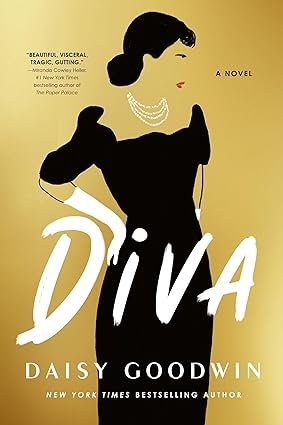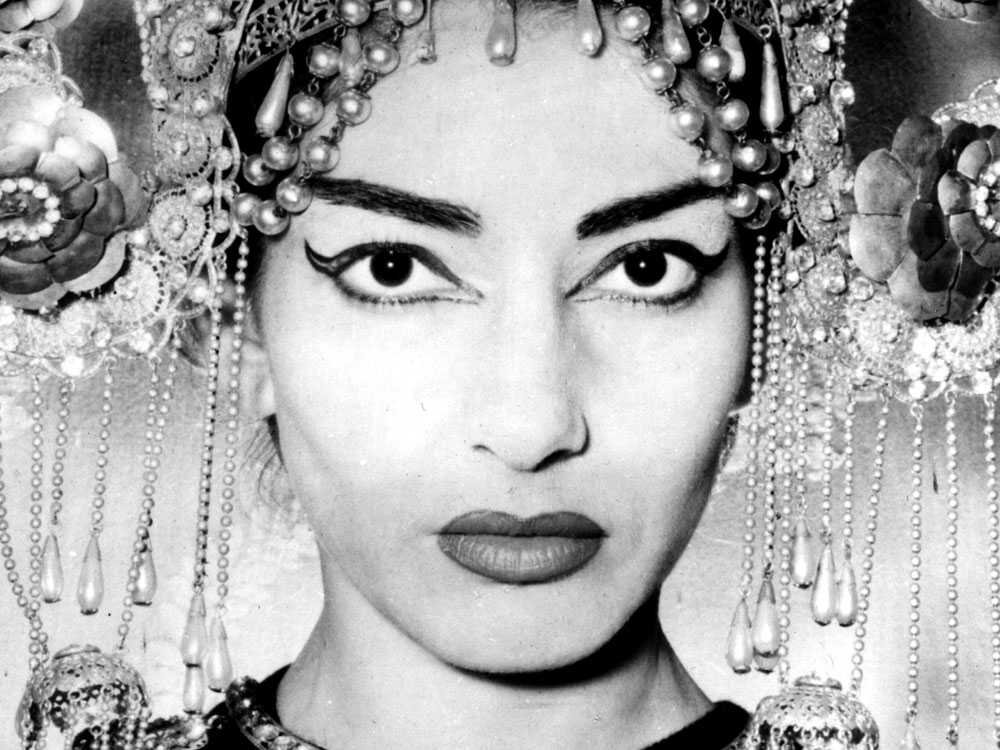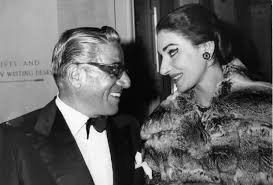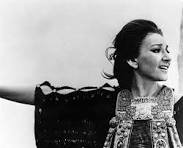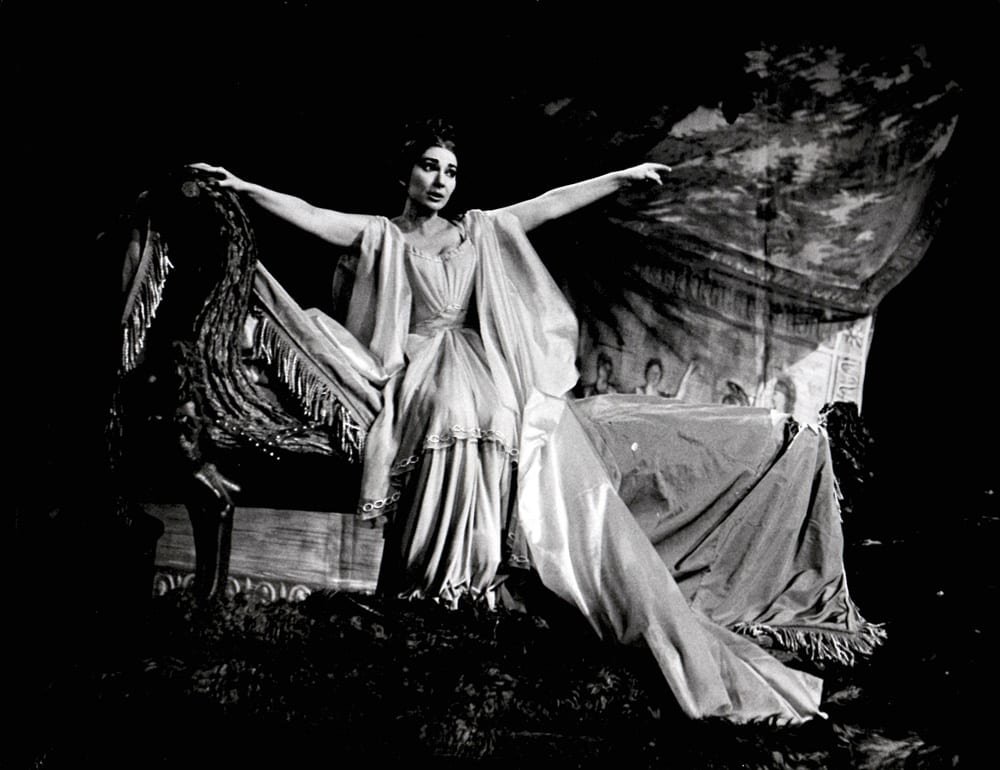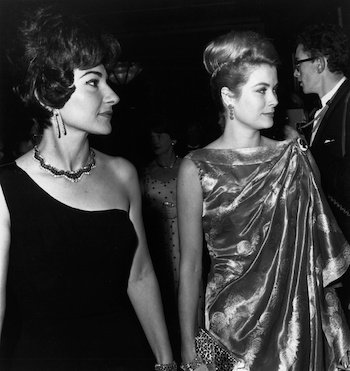‘Diva: A Novel’ (Maria Callas) by Daisy Goodwin
—Cathy Ritchie
Diva: A Novel by Daisy Goodwin
(St. Martin’s Press, 2024)
Since childhood, biography has been my favorite “leisure reading” genre. I was eager to experience other types of literature as I grew older, but non-fiction in general—and people’s real-life stories in particular—were always my preferences. When I later found myself in library school, however, I was happy to sample other fiction/non-fiction sub-sub-categories, which abound in publishing.
Among my discoveries was so-called “historical fiction,” consisting of an author-created character placed into a particular documented time and milieu—World War II, colonial America, the Gilded Age, the Russian Revolution, take your pick. It’s a popular genre, though I tended to avoid it as a reader.
But one day, I heard a phrase that stunned me: “biographical fiction.” A contradiction in terms if ever I heard one. Taking an actual famous person and “fictionalizing” parts of his/her life? Oh, the horror. As a card-carrying biography nerd, I shuddered to imagine what could result from such a contrived melting pot. I still find the phrase oxymoronic, and drew a literary line in the sand: I would avoid this red-flag genre at all costs.
Then along came December 2023, and the hills were suddenly alive with the sounds of Maria Callas’s 100th birthday celebrations. Articles, recording compilations, and expert interviews were justifiably everywhere. I soon heard about author Daisy Goodwin’s opus Diva—a novel about the major romances in Callas’s tumultuous life, set amidst the authentic backdrop of her demanding career. As an enthusiastic connoisseur of Callas’s story, I confess I was tempted to see what this cobbled-together book could possibly add to the singer’s print legacy, though my skepticism knew no bounds. The verdict? While I will always proceed with caution towards “bio fiction,” I did find some worth in Goodwin’s efforts.
The narrative offers background regarding Callas’s early days as a professional singer, along with her family conflicts, struggles with weight, and her eventual massive poundage loss, but the focus clearly rests on the singer’s relationships with her much-older husband Giovanni Battista Menighini, and, later, the much-older love of her life Aristotle Onassis, who eventually left a desperate-for-marriage Callas at the figurative altar in order to wed the world’s most famous widow, Jackie Kennedy.
The Callas/Onassis saga is reasonably well-known, thanks to the eager reporters and paparazzi of the time, but Goodwin manages to keep the action surprisingly compelling. She has an obvious talent for dialogue, and her skill at character development I found more substantive than expected. Goodwin also vividly recreates Callas’s glittering and largely superficial haunts in life, including the ships on which she sailed, thanks to Onassis; the galas she attended, thanks to her opera career; the legendary restaurants at which she dined, thanks to everyone; and the hotels in which she lived and romanced, thanks to the older fellows in her life.
As a bonus, while the spotlight shines brightly on Callas and her men, Goodwin inserts some additional real-life folks into the action, bringing a bit of spark to the proceedings. These include Princess Grace of Monaco (drinking constantly), Winston Churchill (totally opera-ignorant and basically a sedentary slug with a cigar), Lee Radziwill (will she snare Ari before sister Jackie does?) and Tina Onassis (wronged wife with her own young paramour on call 24/7).
My favorite supplementary character by far is professional party-goer/giver Elsa Maxwell, whose obvious lust for Callas inspires her to appear constantly at her beloved’s elbow. The singer considers Maxwell noxious, and avoids her where humanly possible, but the eager lady and her dormant desires surmount all obstacles. I found Maxwell one of Goodwin’s livelier characters, and welcomed her frequent “pop-up” appearances.
The book’s conclusion is sad, as was Callas’s life ultimately. Onassis tired of Jackie and assumed he could easily return to his former paramour’s arms. No such luck. Within Goodwin’s final pages, Maria Callas is a chastened but wiser woman: she slams the door on both Ari and her lifelong romantic dreams.
Diva is harmless entertainment with some attributes I frankly wasn’t expecting; I’m not sorry to have dipped my toes into its glittering pool. However, for anyone seeking a more scholarly (and still totally accessible) biography of Maria Callas, I highly recommend Arianna Stassinopoulos’ 1980 title, Maria Callas: The Woman Behind The Legend.
And for your viewing pleasure: while solid documentaries about Callas abound, Tony Palmer’s Maria Callas: La Divina, A Portrait from 1987 is always my first choice for its thoroughness and high cinematic quality: https://www.youtube.com/watch?v=pbsSZXgV5qw
No matter the format, La Divina has undeniably deserved her moments in the sun, and the devotion she will always inspire. Happy 100th, Maria.
